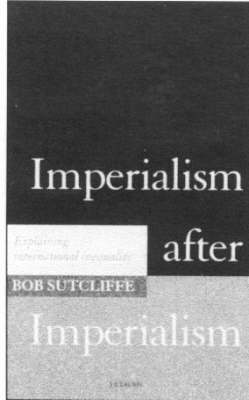The concept of imperialism has been used for many decades to explain human relations on a global scale as an international system of inequality, oppression and conflict. Bob Sutcliffe's new book re-examines the disputes that have in the past surrounded the concept of imperialism and critically assesses the usefulness of the term in the light of recent changes in the world economy and international system. The book is divided into three sections. Part one sets out the main theoretical debates about imperialism from the mid-19th century onwards. Its principal aim is to clarify disputed questions rather than simply to re-expound the views of major writers on the topic. Part two looks at different versions of the claim that in the contemporary world imperialism has disappeared. Part three looks at a series of important recent changes in global relations, bringing out their implications for the theory of imperialism, and summarizing a large body of empirical evidence on the subject of international inequality and oppression.
In addition, the later chapters in this section outline the consequences for a theory of imperialism of a number of developments in social and political thought in other fields (including feminism, ecology and post-modernism) and of recent major political events. In this book Sutcliffe argues that, while many of the contemporary objections to the theory of imperialism are valid, it is impossible to dispense with a suitably adapted version of the concept. In the late 20th century imperialism remains an essential instrument for understanding the world and its inequalities and conflicts.
- ISBN10 1850437009
- ISBN13 9781850437000
- Publish Date 18 December 2012
- Publish Status Cancelled
- Out of Print 11 March 2021
- Publish Country GB
- Publisher Bloomsbury Publishing PLC
- Imprint I.B. Tauris
- Format Hardcover
- Pages 256
- Language English
